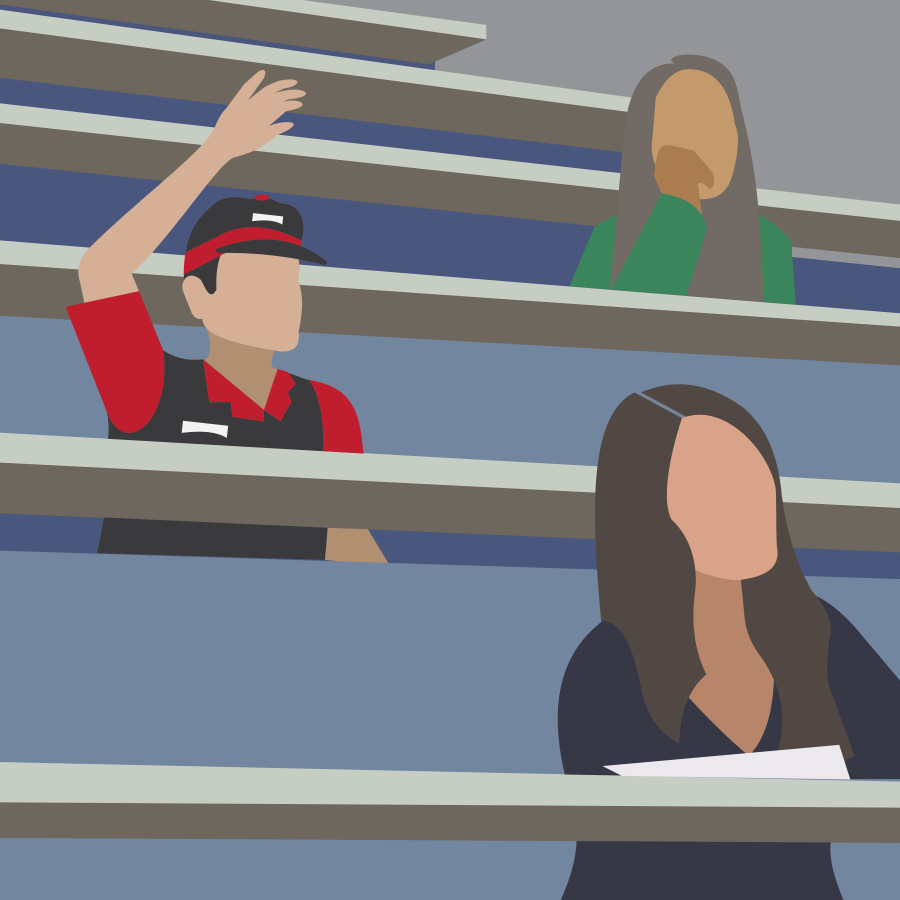Each semester of college has presented its own unique set of challenges, but the spring semester of my senior year has shown me a new level of chaos.
Along with the expected headaches over assignments and exams, I took on hours of extra work each week to write a thesis. My classes became more centered around long-term projects, causing me to rarely have a weekend off.
On top of all this, I’ve had to find time to make post-graduation career plans. For me, this usually requires working well into the night to pull a cover letter together while fighting to keep my eyes open. In a competitive job market, feeling rushed isn’t ideal.
With graduation looming ahead, spending so much time sitting in a classroom when I still haven’t landed a job seems futile. Professors could alleviate this by excusing certain absences related to career advancement, such as working on applications and going
to interviews.
While professors may worry about students falling behind after missing a class, they should consider the context regarding absences. Which is more harmful to the student’s life trajectory: missing one class in a course that may or may not be relevant to their field or missing an opportunity to land a job after graduation?
In order to prevent abuse of this policy, professors could require tangible proof students missed class to work on an application or attend an interview. In both scenarios, students typically have an email confirming their application was sent in or scheduling details with an interviewer.
I knew I would have to devote some time to job hunting this semester, but I was not prepared for how long it actually takes. A career adviser recommends pursuing 30–40 jobs at once, which requires a great deal of time and attention. Without missing classes, students have to sacrifice the little free time they have to rest in the evenings and on weekends.
“(This) year, I applied to 93 jobs and had to attend 28 interviews,” said Tori Gahagan, a Plan II and mechanical engineering senior. “Most of the interviews are hours long … many are on location at company offices, which requires that I miss entire days of school.”
By failing to create attendance policies that excuse these absences, professors force students to choose between their careers and their academic goals.
“My engineering dynamics class had mandatory discussion sessions every Friday, during which we would have quizzes,” Gahagan said. “I was (interviewing) for consulting companies at the time, most of whom only schedule interviews on Fridays. The professor would not allow me to make up the quizzes or absences.”
If more professors allowed students to miss a few classes without penalty to advance their careers, the entire University would benefit. UT looks better when a high percentage of recent graduates land jobs right away or go straight to graduate school.
Colleges feature reports on their websites each year to present this information to current and prospective students. In giving students sufficient time to devote to career development, professors would help increase students’ chances of getting hired in well-paying jobs as close to graduation as possible.
While professors have a right to design attendance policies they feel work best for their courses, they should consider treating absences having to do with career advancement as justified. This way, students would be able to put ample effort into job hunting without sacrificing academic progress.
Waltz is a radio-television-film senior from Dripping Springs.





















